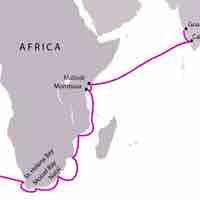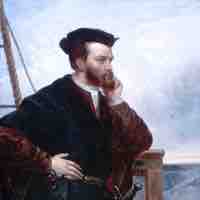Section 2
The Age of Discovery
By Boundless
A prelude to the Age of Discovery was a series of European expeditions crossing Eurasia by land in the late Middle Ages undertaken by a number of explorers, including Marco Polo, who left behind the most detailed and inspiring record of his travels across Asia.

During the 15th and 16th centuries, Portuguese explorers were at the forefront of European overseas exploration, which led them to reaching India, establishing multiple trading posts in Asia and Africa, as well as settling in what would become Brazil and, by the same token, creating one of the most powerful empires.
The voyages of Christopher Columbus initiated European exploration and colonization of the American continents that eventually turned Spain into the most powerful European empire.
Throughout the 17th century, the British established numerous successful American colonies and dominated the Atlantic slave trade, which eventually led to creating the most powerful European empire.

France established colonies in North America, the Caribbean, and India in the 17th century and while it lost most of its American holdings to Spain and Great Britain before the end of the 18th century, it eventually expanded its Asian and African territories in the 19th century.